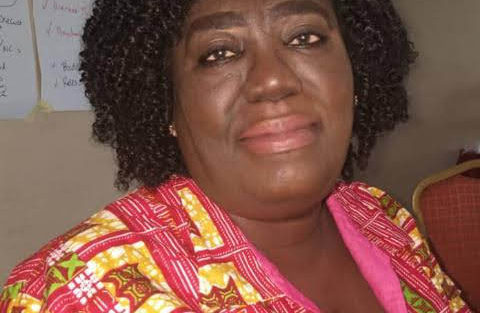Introduction
Women and girls face numerous challenges with regards to their sexual and reproductive health as well as accessing services. Although there are efforts to improve educational opportunities for girls, one of the challenges they face is menstrual hygiene management and other pubertal changes.
Many studies have documented the impact of menstruation on the education of girls, with challenges of menstrual hygiene management and acquisition of sanitary towels affecting girls’ school attendance. It is reported that, some girls stayed away from school for up to five days in a month during their menstrual period. This setback leads many to fully withdraw from school altogether.
Creating a healthier, safer, and more equitable world in which women and girls are not stigmatized, excluded, or discriminated against merely because they menstruate, is a non-negotiable obligation for which everyone must take responsibility. In view of that, the world commemorates Menstrual Hygiene Day on 28th May of every year to draw global attention to the issues women and girls face just to be women and girls. Menstrual Hygiene day is observed on May 28th because the menstrual cycle is an average of 28 days and lasts for 5 days each month (May is the 5th month of the year).
Interview with Madam Aba Oppong
ARHR as part of activities to commemorate this year’s Menstrual Hygiene Day, interviewed Madam Aba Oppong, a Sexual and Reproductive Health and Rights expert and the Executive Director of Rights and Responsibilities Initiatives Ghana (RRIG) for her expert opinion on the challenges women and girls face during menstruation, as well as how best we can make menstruation a normal fact of life, which is the theme for the year’s celebration.
Madam Oppong emphasized the significance of commemorating the Day, noting that it aims to break the stigma and taboo surrounding menstruation while also providing public education on the need for parents/guardians to act as agents of change by advocating for the continued provision of sanitary materials to all girls and women of reproductive age.
“This day is important. It highlights the need for girls and women to enjoy their right to health by using appropriate sanitary materials to protect themselves from infections,” she stated.
Madam Oppong further indicated that the day presents an opportunity to demand increased resources for girls and women to have adequate access to sanitary towels and information regardless of wherever they find themselves.
Challenges women and girls face as a result of menstruation
Speaking about the challenges women and girls face during their menstrual periods, Madam Oppong indicated that the majority of girls and women suffer from menstrual pains which adversely affect their health, education, and economic independence.
“Others may also not have the appropriate menstrual products such as sanitary pads to manage their periods,” she added.
The lack of sufficient menstrual hygiene materials, Madam Oppong stated has a negative impact on women’s self-esteem, particularly girls and may impede their confidence in engaging with other people outside the home, at school, at work, and other public spaces.”
Madam Oppong further indicated that poor menstrual hygiene can lead to a variety of health problems, including fungal and bacterial infections of the reproductive tract and urinary tract, as well as rashes, all of which can contribute to future reproductive complications.
Lack of sanitary pads has been widely reported to be a major contributory factor to school absenteeism among girls in their menstrual period. Furthermore, research has documented menstruating girls’ experiences of shame, fear, and confusion across many communities in Ghana.
The challenges girls face attempting to manage their menstruation with insufficient information about their bodies, a lack of social support and ongoing social and hygiene taboos lead to a vicious cycle that affects the health and education of many girls in our communities.
Given the multiple challenges adolescent girls face, it is evident that promoting menstrual hygiene management is an important step towards safeguarding the dignity, bodily integrity, and overall life opportunities of girls.
Making menstruation a normal fact of life by 2030
Madam Oppong pointed out that this year’s theme is a clarion call for investment in the provision of adequate menstrual hygiene materials.
“Investment in and availability of adequate menstrual hygiene materials will give girls the confidence to live normal lives while also keeping them in school to achieve their economic potential, just as their male counterparts do; likewise women at work to enable them to achieve sustained economic independence,” she stated.
She also stated that it is also a call to the general public to recognize that effective menstrual hygiene is costly, and that, if possible, supplies should be subsidized in general, with those whose parents cannot afford to receive it for free at designated points in all communities.
Way Forward
Madam Oppong indicated that overcoming issues associated with menstruation first begins with sensitizing girls as young as nine (9) years at home and school and also by CSOs on puberty and menstrual hygiene.
She believes that starting conversations on puberty and menstrual hygiene before the onset of menstruation will allow girls to be open about their menses and the implications for fertility, reproductive, and rights in general, as well as avoid risky sexual behavior that could lead to early sexual encounters, unplanned pregnancies, unsafe abortion, teenage pregnancies, and sexually transmitted infections.
She also stated that “conversations on puberty and menstrual hygiene will help reduce the stigmatization of menstruation in general and the taboos that surround menstruation,” in Ghana and more broadly, Africa.
About our Resource Person
Madam Aba Oppong is the Executive Director at Rights and Responsibilities Initiatives Ghana (RRIG) responsible for overseeing the administration, financial management, programs and strategic implementation plan of the organization’s projects.
Aba has coordinated projects on Women and Girls Leadership, Safe Motherhood, Contraceptive Security, Prevention Care and Support for HIV and AIDS, Children’s Rights, Support for Persons with Intellectual and Developmental Disabilities (PWIDD), Social Public Expenditure and Financial Accountability. Resource Mobilization Awareness which sought to improve contraceptive security with emphasis on access, quality and availability. Aba participated in Women’s Leadership and Reproductive Health Training sponsored by PLAN-USA with funding from USAID. Aba has participated in numerous conferences globally focusing on empowering women and girl and the promoting contraceptive security and utilization, Good Governance and Peace Building. Her mission and vision is to ensure that all girls are trained to be able to achieve economic independence and be accorded their human dignity.
Her interests include; promoting Gender Equity to facilitate Women’s Leadership in Local Governance, Women and Children’s Rights, Good Governance, Current Affairs and Women’s contribution to Development. In the past she has served as an alternative member of the United Nations Committee in Ghana (2004-2007), a Board Member of CEDI Finance Foundation (2004-2008) and an advisory member of the Department of Women in the Ashanti Region in Ghana from 2004 to Date.
As a Programme Manager in Centre for the Development of People (CEDEP), Aba coordinated the Sustainable Livelihood, Health, Gender, Advocacy and Governance projects. In addition she served as the Ashanti Regional President of the Ghana NGO Coalition on the Rights of the Child (GNCRC), (2014-2017) when she was elected as the National Treasurer of the GNCRC in April, 2017. Aba was the Ashanti Regional Treasurer of the Ghana National Education Campaign Coalition (GNECC), (2010-2017) and is currently a member of the Ashanti Regional Child Protection Committee (ARCPC), (2017 to Date). In October 2016, Aba was unanimously elected the Anti-Corruption Champion at a meeting of Civil Society Organizations (CSOs) in Kumasi to date. Aba is an avid environmentalist and a campaigner for clean energy and reduction of fossil fuel use.



